Confederate Truths: Documents of the Confederate & Neo-Confederate Tradition from 1787 to the Present.
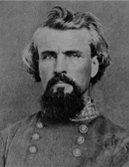

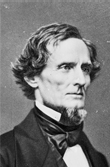
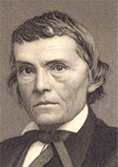

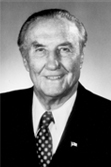
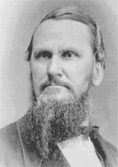
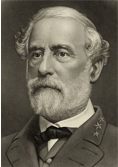
Alexander H. Stephens' speech before the Virginia Secession Convention
Alexander H. Stephens' speech before the Virginia Secession Convention.
The following is an extract from Alexander H. Stephens' speech before the Virginia Secession convention, April 23, 1861 from the book, Alexander H. Stephens, in Public and Private, with Letters and Speeches, Before, During, and Since the War, by Henry Cleveland, National Publishing Company, 1866, pages 729-745. The extract here from pages 741-743. It is also available in Proceedings of the Virginia State Convention of 1861, Vol. 4, reprinted by the Virginia State Library, 1966 Pp. 373-390. The commentary on slavery is on pages 385 to 388.
The reasons given in this speech are very similar to his more widely known Cornerstone speech which is in the Confederate and Neo-Confederate Reader. It is important since it shows that Stephens views regarding slavery and the Confederacy is not a one-time theme of one speech. Some neo-Confederates have started the argument that the Cornerstone speech was an occasion where Stephens misspoke himself and some how didn't mean it. However, Stephens repeatedly spoke on the same ideas of the Cornerstone speech that the Confederacy was based on white supremacy and slavery. The Confederate and Neo-Confederate Reader did have room for all the examples, so the speeches not included in the book are on this web site.
The extract from his speech is as follows:
One good and wise feature in our new or revised Constitution is that we have put to rest the vexed question of slavery forever, so far as the confederate legislative halls are concerned. On this subject, from which sprung the immediate cause of our late troubles and threatened dangers, you will indulge me in a few remarks as not irrelevant to the occasion. The condition of the negro race amongst us, presents a peculiar phase of republican civilization and constitutional liberty. To some, the problem seems hard to understand. The difficulty is in theory, not in practical demonstration; that works well enough—theories in government, as in all things else, must yield to facts. No truth is clearer than that the best form or system of government for any people or society is that which secures the greatest amount of happiness, not to the greatest number, but to all the constituent elements of that society, community or State. If our system does not accomplish this; if it is not the best for the negro as well as for the white man; for the inferior as well as the superior race, it is wrong in principle. But if it does, or is capable of doing this, then it is right, and can never be successfully assailed by reason or logic. That the negroes with us, under masters who care for, provide for and protect them, are better off and enjoy more of the blessings of good government than their race does in any other part of the world, statistics abundantly prove. As a race, the African is inferior to the white man. Subordination to the white man, is his normal condition. He is not his equal by nature, and cannot be made so by human laws or human institutions. Our system, therefore, so far as regards this inferior race, rests upon this great immutable law of nature. It is founded not upon wrong or injustice, but upon the eternal fitness of things. Hence, its harmonious working for the benefit and advantage of both. Why one race was made inferior to another, is not for us to inquire. The statesman and the Christian, as well as the philosopher, must take things as they find them, and do the best he can with them as he finds them.
The great truth, I repeat, upon which our system rests, is the inferiority of the African. The enemies of our institutions ignore this truth. They set out with the assumption that the races are equal; that the negro is equal to the white man. If their premises were correct, their conclusions would be legitimate. But their premises being false, their conclusions are false also. Most of that fanatical spirit at the North on this subject, which in its zeal without knowledge, would upturn our society and lay waste our fair country, springs from this false reasoning. Hence so much misapplied sympathy for fancied wrongs and sufferings. These wrongs and sufferings exist only in their heated imaginations. There can be no wrong where there is no violation of nature's laws. We have heard much of the higher law. I believe myself in the higher law. We stand upon that higher law. I would defend and support no constitution that is against the higher law. I mean by that the law of nature and of God. Human constitutions and human laws that are made against the law of nature or of God, ought to be overturned; and if Seward was right the Constitution which he was sworn to support, and is now requiring others to swear to support, ought to have been overthrown long ago. It ought never to have been made. But in point of fact it is he and his associates in this crusade against us, who are warring against the higher law—we stand upon the laws of the Creator, upon the highest of all laws. It is the fanatics of the North, who are warring against the decrees of God Almighty, in their attempts to make things equal which he made unequal. My assurance of ultimate success in this controversy is strong from the conviction, that we stand upon the right. Some years ago in the Hall of the House of Representatives, a very prominent gentleman from Ohio, announced with a great deal of effect, that we at the South would be obliged to yield upon this question of slavery, because we warred against a principle; and that it was as impossible to war successfully against principle in politics as it was in mechanics. The principle said he, would ultimately prevail. He announced this with imposing effect, and endeavored to maintain that we were contending against the great principle of equality in holding our fellow men in the unnatural condition of bondage. In reply, I stated to him, that I admitted his proposition as he announced it, that it was impossible to war successfully against a principle in mechanics and the same was true in politics—the principle would certainly prevail—and from that stand point I had come to the conclusion that we of the South would ultimately succeed and the North would be compelled to yield their ideas upon this subject. For it was they who were contending against a principle and not we. It was they who were trying to make the black man a white man, or his equal, which was nearly the same thing. The controlling laws of nature regulate the difference between them as absolutely as the laws of gravitation control whatever comes within their action—and until he could change the laws of gravitation, or any other law of nature, he could never make the negro a white man or his equal. No human efforts or human laws can change the leopard's spots or the Ethiopian's skin. These are the works of Providence—in whose hands are the fortunes of men as well as the destiny of nations and the distinctions of races.
On this subject a change is evidently going on in the intellectual world—in the republic of thinkers. The British West India experiment has done much to produce this change. All theories on the problem of human society must in the end yield to facts—just as all theories and speculations in other departments of science must yield to the same sure and unerring test. The changes of sentiment upon the subject of negro subordination have been great already, for this is the proper term to designate his condition with us. That they will continue as truth progresses, there can be no doubt. All new truths progress slowly. With us this change of view and sentiment has been wonderful. There has been almost a complete revolution within the last half century. It was a question little understood by the eminent statesmen of the south seventy years ago. This is no disparagement to their wisdom or ability. They were occupied in the solution of other great new truths upon which rested the first great principles of self-government by the governing race. These principles they solved and established. They met and proved themselves equal to the exigencies of their day and generation—that was enough to fill the measure of their fame. Each generation in the eternal progress of all things connected with existence, must meet new questions, new problems new phases of even old subjects, and it will be enough for the men of each generation, if they prove themselves equal to the requirement of the times in which they live. As our fathers were equal to all the questions of their day, so may their sons be at this and all succeeding times. This is the point to which our attention should be chiefly directed.
In our Constitution, provision is made for the admission of other States into the Confederacy; but none can be admitted without first adopting our Constitution, and, consequently, none can be admitted which does not first adopt the fundamental principles on which our social and domestic institutions rest—thereby removing forever from our public or confederate councils that question which gave rise to so much disturbance in the old government.